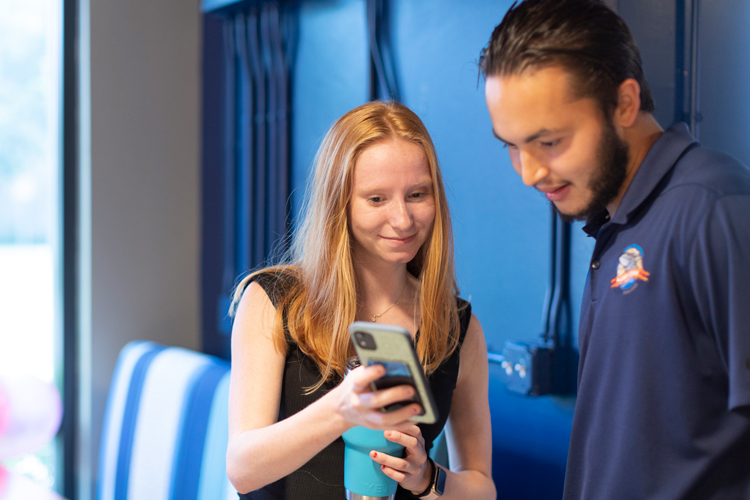Good Grades at an Accredited College? Get on the Fast Track.
If you’ve been attending a qualified school and earning passing grades, the Nova Southeastern University Transfer Advantage Program (NSUTAP) could accelerate your admissions process.
Transfer applicants in good academic standing who have earned an Associate of Arts degree or 60 credit hours from the Florida College System or other accredited school may be admitted to NSU with junior standing and granted 60 transfer credits through the ICUF articulation agreement.
Schools may be accredited by the Southern Association of Colleges and Schools Commission on Colleges (SACSCOC) or similar accrediting commissions. Please review the admissions and application requirements below for eligibility.
Qualifying for the Transfer Advantage
You can qualify for TAP with either 24 or 60 credits. In both cases, you must not have any criminal convictions or any judicial or disciplinary sanctions at your current university.
Option 1: 60 Credits with a 2.2 GPA
If you are transferring from the Florida College System or a school accredited by the Southern Association of Colleges and Schools (SACSCOC), you’ll qualify for TAP with a minimum cumulative GPA of 2.2 with at least 60 college-level credits.
Option 2: 24 Credits with a 2.5 GPA
If you are transferring from the Florida College System or any accredited school (by SACSCOC or another accrediting body), you’ll qualify for TAP with a minimum cumulative GPA of 2.5 with at least 24 college-level credits.
Deadline to Apply
Your Transfer Application and all required documentation must be submitted by the April 1 Priority Date.
Steps to Apply for Transfer Admission
SAT Code = 5514
ACT Code = 6706
(If applicable)
Will Your Credits Transfer?
Learn which credits transfer and apply to TAP.
You can learn more about NSU's policies on transfer credit, examinations, prior experience, and the process for requesting transfer credit at the Office of Transfer Evaluation Services.
For TAP applicants, a grade of C or higher must be earned for an equivalent transfer course. Courses in which a grade lower than C is earned will be awarded SACSCOC 1999 elective transfer credit; courses with a failing grade will not be considered for transfer credit.
For students utilizing the ICUF articulation agreement, all credits must be earned at institutions accredited by the Southern Association of Colleges and Schools Commission on Colleges (SACSCOC).
Transfer Scholarships
Phi Theta Kappa Award
New transfer students who are members of Phi Theta Kappa will receive an additional $1,000 added to their Dean's Scholarship. Students must indicate on their application for admission that they are a member of Phi Theta Kappa and show proof of their membership.
Dean’s Scholarship
This scholarship is awarded based on a student’s past academic achievement. Recipients may receive from $12,000 to $20,000 annually, determined by their previous grades at the college level.

Still Have Questions?
Contact an admissions counselor.
One thing you’ll learn about NSU is that we take your success seriously. Our dedicated advisers help students like you meet their goals.
You don’t even have to be enrolled to connect with your first NSU adviser: your admissions counselor. They can answer any questions you have and get you started on the application process when you’re ready.
I love the NSU community. It’s my home away from home. I receive support from everyone: students, faculty and staff.
Chris C. | Business



